The reason so many Apple products begin with “i” is thanks to Ken Segall. He now claims that it’s time to remove the prefix completely.
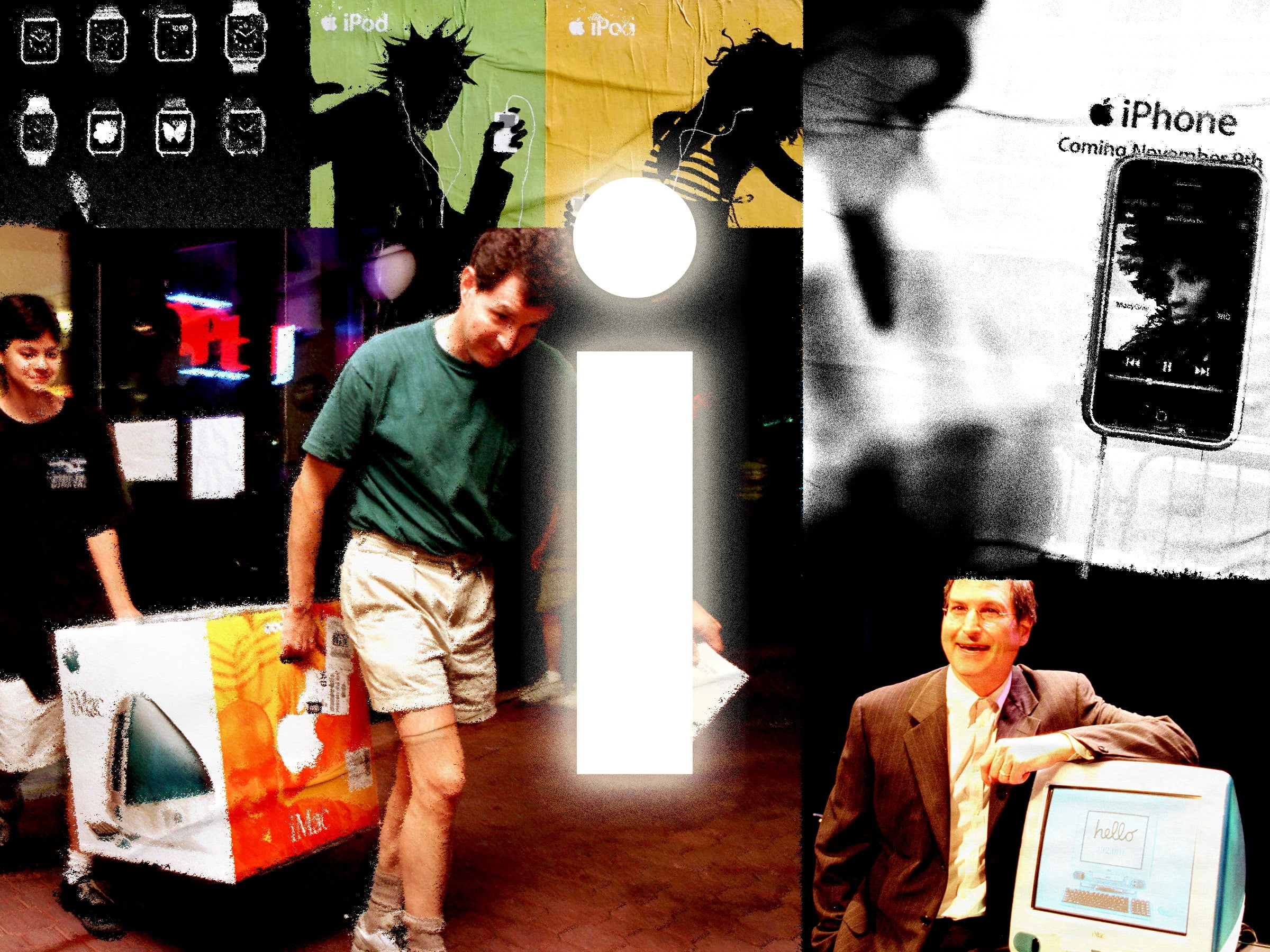
TFD – Ken Segall, the mastermind behind Apple’s iconic “i” prefix, now believes it’s time for the tech giant to abandon this branding strategy. In a recent discussion, Segall emphasized that the prefix has lost its relevance in today’s market.
In Short
- Ken Segall, who introduced the “i” prefix with the iMac, suggests Apple should drop it.
- The “i” prefix once signified internet readiness but is now seen as outdated.
- Segall’s opinion is supported by branding experts who believe Apple’s brand is strong enough without the prefix.
- Historical context of the “i” prefix, including products like iMac, iPod, and iPhone.
- Apple has already shifted away from the “i” with newer products like Apple Watch and Apple Vision Pro.
Last week’s launch of more powerful iPads shows that, for now—and for this line of products at least—Apple is sticking with its long-in-the-tooth “i” prefix. But how much time remains for this dotted relic of the Steve Jobs era, a lower-case vestigial tail with little modern relevance?
Brand experts and Ken Segall, the creative who called the first Apple product with an i prefix 26 years ago, agree that it’s not been that long.
In 1998, Segall was the one who convinced Jobs to adopt the new computer name “iMac” rather than the internally designed and just awful term “MacMan.” (Grateful to Segall that the ManPhone never existed.)
The iMac, a revolutionary and alluring device designed to provide an instantaneous internet connection when other computers proved difficult to use, gave rise to an extensive range of Apple “i” products, including the now-retired iBook, a rounded, candy-colored laptop mocked in the 1990s as “Barbie’s toilet seat,” and the company’s ongoing data storage service, iCloud.
After working as a copywriter at TBWA\Chiat\Day for 12 years, Segall is still immensely proud of the 12 years he spent wrangling words for Jobs. The 74-year-old has authored two best-selling books about his experiences handling Apple’s advertising account. Additionally, he has profited monetarily from his close relationship with Apple’s little prefix—which at first only denoted that a device was internet-ready—through a speaking career.
Speaking from his Los Angeles home, he quips, “I’m milking this thing as long as I can.” “People find what I have to say interesting because I designed the ‘i’ in the original iMac.” Surprisingly, though, Segall wishes to murder his own infant. In his opinion, Apple shouldn’t maintain the prefix.
He declares, “The ‘i’ needs to go.” It has no meaning anymore. Yes, [Jobs] created [Apple] around it, but keep in mind that the ‘i’ has always been a subsidiary brand. Market analysts may argue that Apple would be stupid to remove the prefix—it still appears in front of some of the biggest brands ever—but the prefix cannot be protected, and companies that use ‘i’ internet-connected products for too long present a problem for Apple, which is known for its innovative products.
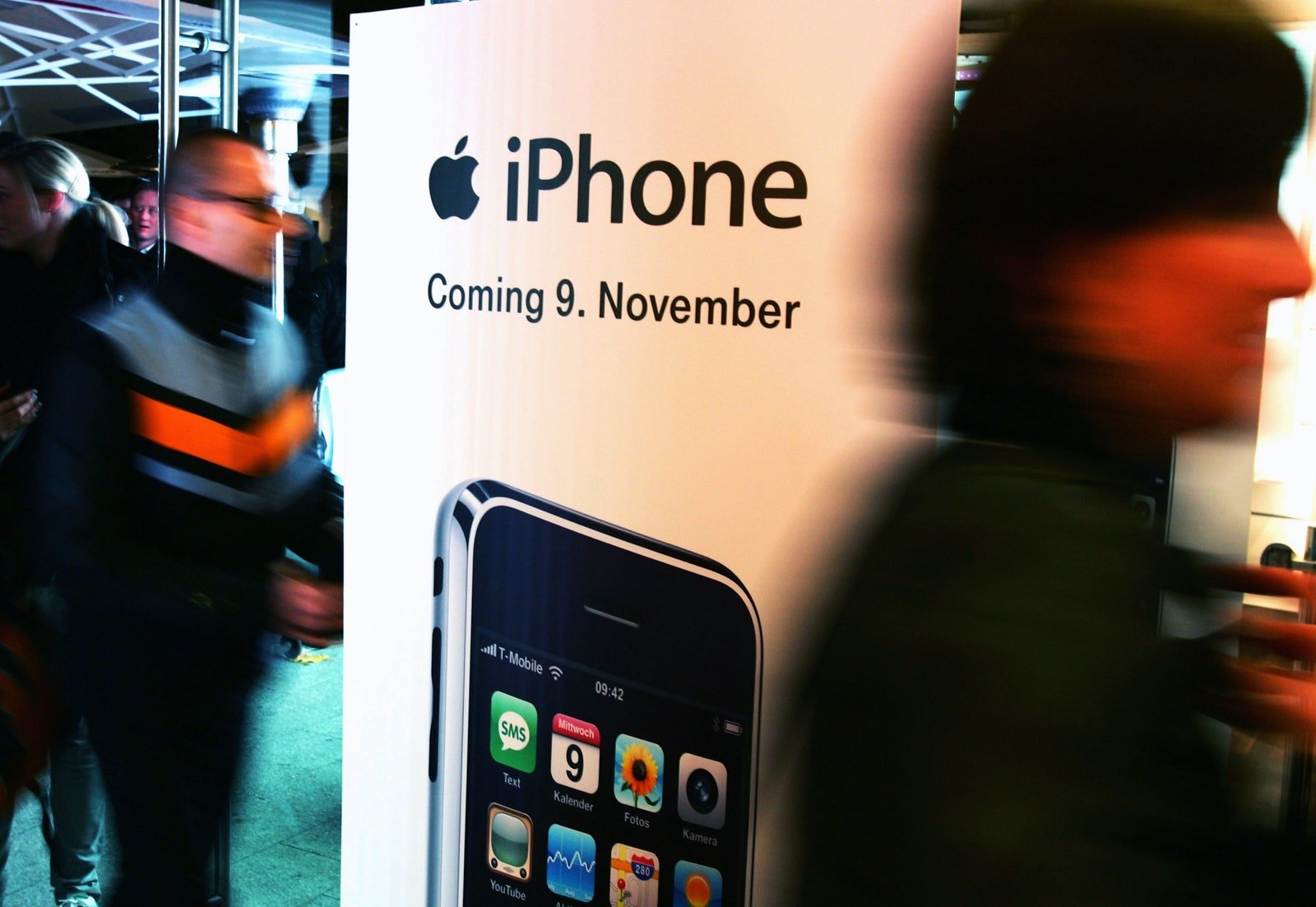
In agreement, Ashwinn Krishnaswamy, a partner at the branding firm Forge Coop in New York, says, “Connectivity is ubiquitous today.” An ‘i’ should not be added to products since the distinction between online and offline shopping is becoming less and less prevalent. It is outdated and overused.
Give up on the name iPhone? According to Krishnaswamy, Apple “could call it virtually anything, and we’re still going to buy it.” Should [Apple] declare that there will be no more iPhones—this is the Apple Phone—we’ll begin referring to it as such. Eliminating the ‘i’ from the iPhone won’t hurt sales because of Apple’s wide distribution, well-known brand, and well-known product.
The head of the US/UK communications agency Battenhall’s New York office, Anton Perreau, has experience working with Google, Amazon, and Netflix. He agrees that Apple wouldn’t lose any sales if it removed the “i” from the iPhone, but he believes the company won’t do so until its flagship device has undergone a major redesign in the future.
The iPhone enjoys such a high degree of notoriety and goodwill that I don’t see the name changing until Apple releases a phone that is completely unique from the current models.” The shift won’t occur until Apple releases a product that may have even greater brand equity than the iPhone because they have invested a great deal of time and money into developing the iPhone’s brand equity.
Perreau notes, though, that it’s evident that Apple has been moving away from the “i” for a while.
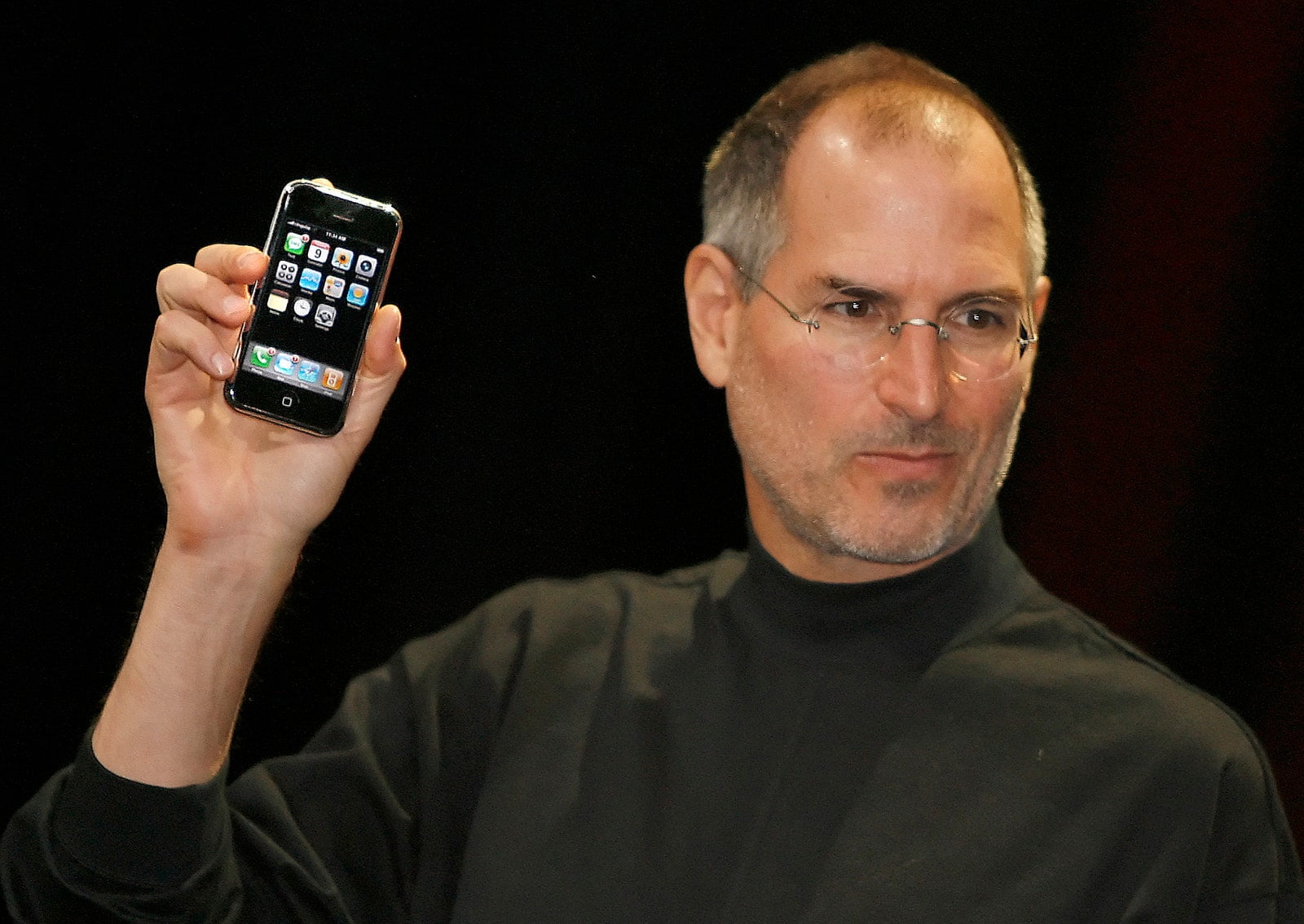
According to Perreau, “the ‘i’ branding is a hallmark of the Steve Jobs era.” The more recent titles, such as Apple Watch and Apple Vision Pro, demonstrate a tactical advancement. Apple simply hasn’t stated anything about dropping the ‘i,’ they didn’t announce it. Apple is the brand; it is not “i.”
Even still, the sheer number of iProducts that Apple offers in addition to the iPhone and iPad demonstrates how much the company has relied on its catchy moniker: iMac, iBook, iPod, iPod Mini, iPod Nano, iPod Shuffle and iPod Touch, iPad Mini, iPad Air, and so on.
2007 saw the release of Apple TV, a noteworthy exception. Many people had speculated that the company’s streaming video platform will go by the name “iTV” or some other variation of “i.” The fact that the UK’s national commercial broadcasting network, which was established in 1955 to compete with the BBC, is known as the Independent Television network, or ITV, may be one reason it wasn’t. Love Island USA, Hell’s Kitchen, Queer Eye, and other shows are produced by ITV America, which distributes shows and programming all over the world.
In fact, the BBC started its own streaming TV service in 2007 under the name iPlayer, registering a trademark for the name in January of the same year, realizing that the video streaming revolution was rapidly arriving.
Furthermore, based on a 2014 ABC News interview in which Tim Cook casually referred to the newly unveiled Apple Watch on his wrist as an iWatch rather than praising it, it appears that the Apple Watch was known as the “iWatch,” at least at some point during its development.
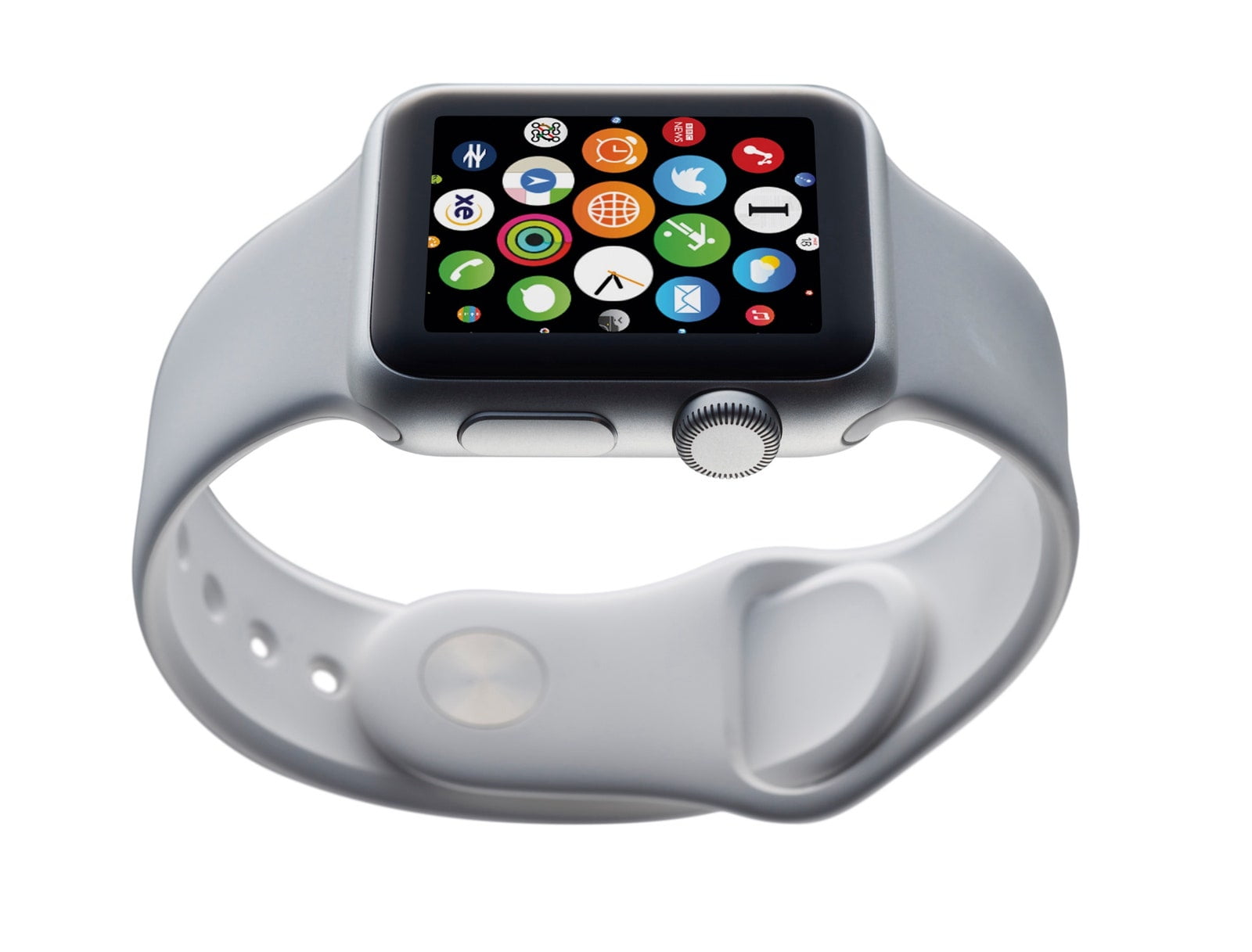
Apple may have dropped the “iWatch” moniker before revealing the device in September 2014 due to impending trademark disputes rather than a move away from the cutesy prefix. Two years prior to Apple’s wearable announcement, in 2012, tiny US firm OMG Electronics filed for trademark protection for an iWatch on the Trademark Electronic Search System (TESS) of the US Patent and Trademark Office.
The cause of the “i” in OMG? It debuted their “ultimate mobile device” on Indiegogo, a crowdsourcing website. It attracted just seven backers and raised only 1% of its $90,000 campaign target. There were similar trademark applications on TESS prior to Apple filing its patents for the wearable, some of which called the device an iWatch in several non-US markets. It’s true that Apple tried, but was unable, to trademark iWatch globally.
It was obvious that Apple’s terminology was predictable and being used unfairly. Sure, it could have spent the money to buy out the minnows with prior claims, but why would it care if the end goal was to eliminate the “i”?
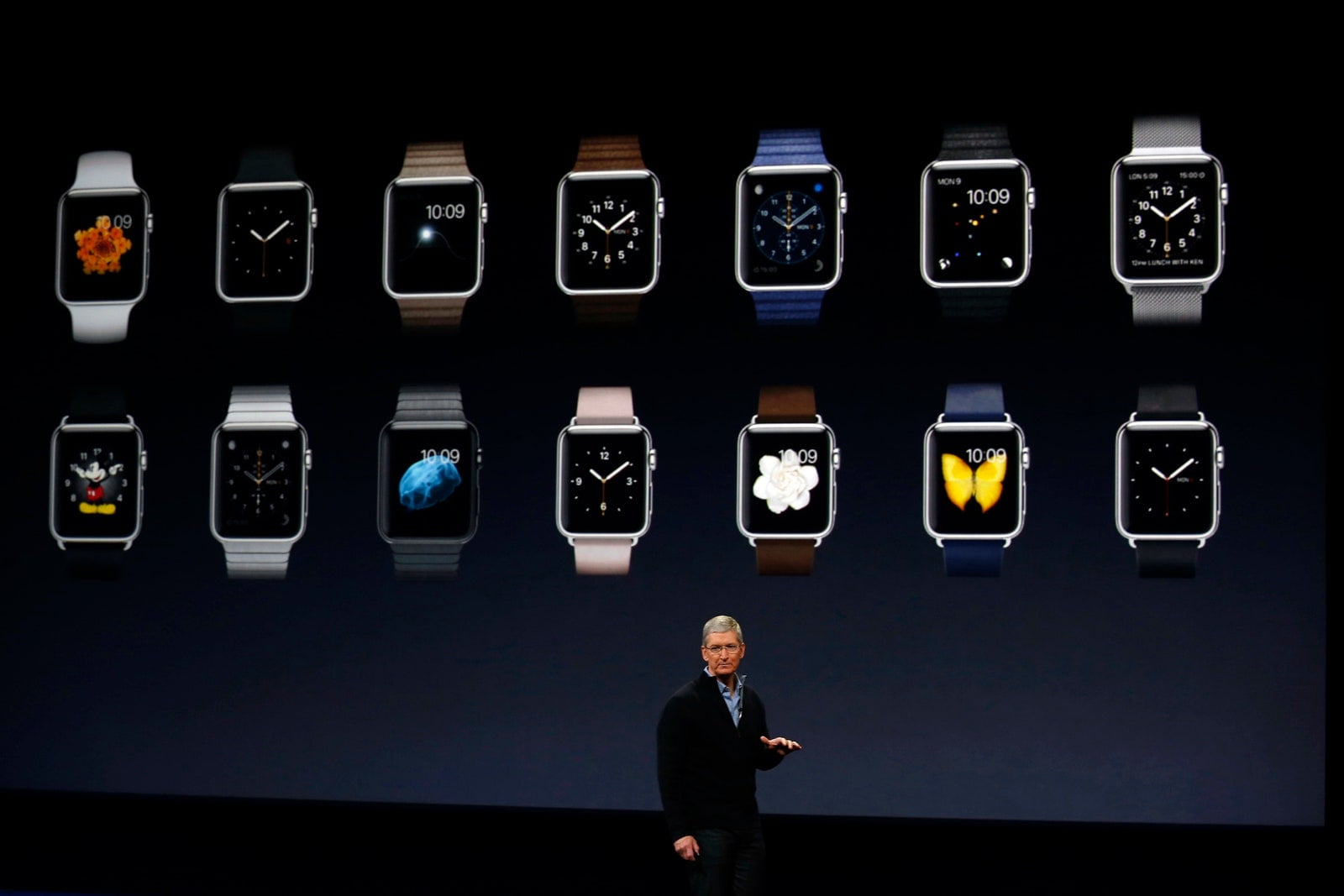
Even if Apple did remove the “i,” it wouldn’t be the biggest change the business has ever made. The corporation is accustomed to makeovers, as Segall notes, and he thinks Apple CEO Tim Cook wouldn’t miss a beat over getting rid of the Jobs-era prefix. An inquiry for comment on this article was not answered by Apple.
According to Segall, “Apple has done some incredibly bold, rash, risky things in the past.” “Experts were like, ‘Oh my, seriously?’ every time they changed processors or altered the operating system. Are you going to replace the hardware platform entirely or are you going to rebuild the operating system? However, Apple succeeded.
He admits that the Apple of today is likely more risk averse than the Apple of employment because it is a larger company with more money at stake and employment at danger. Still, it aspires to be recognized as an innovation, and adopting a product name just for the purpose of maintaining brand identity isn’t really Apple.
Apple’s renowned, Emmy-winning 1997 ad, which Segall collaborated on, was titled “Think Different.” He wrote the copy for the 60-second television commercial, which featured a number of pre-Apple geniuses, including Mahatma Gandhi, Amelia Earhart, Albert Einstein, Thomas Edison, and Martin Luther King Jr., along with other “misfits, rebels, and troublemakers,” and claimed that “people who are crazy enough to think they can change the world are the ones that do.”
The campaign was a holding one; Apple had no new products to sell, and as Jobs was fond of telling people at the time and afterward, the company was just 90 days from bankruptcy, with his return to the company that he’d cofounded in 1976 a considerable risk for investors.
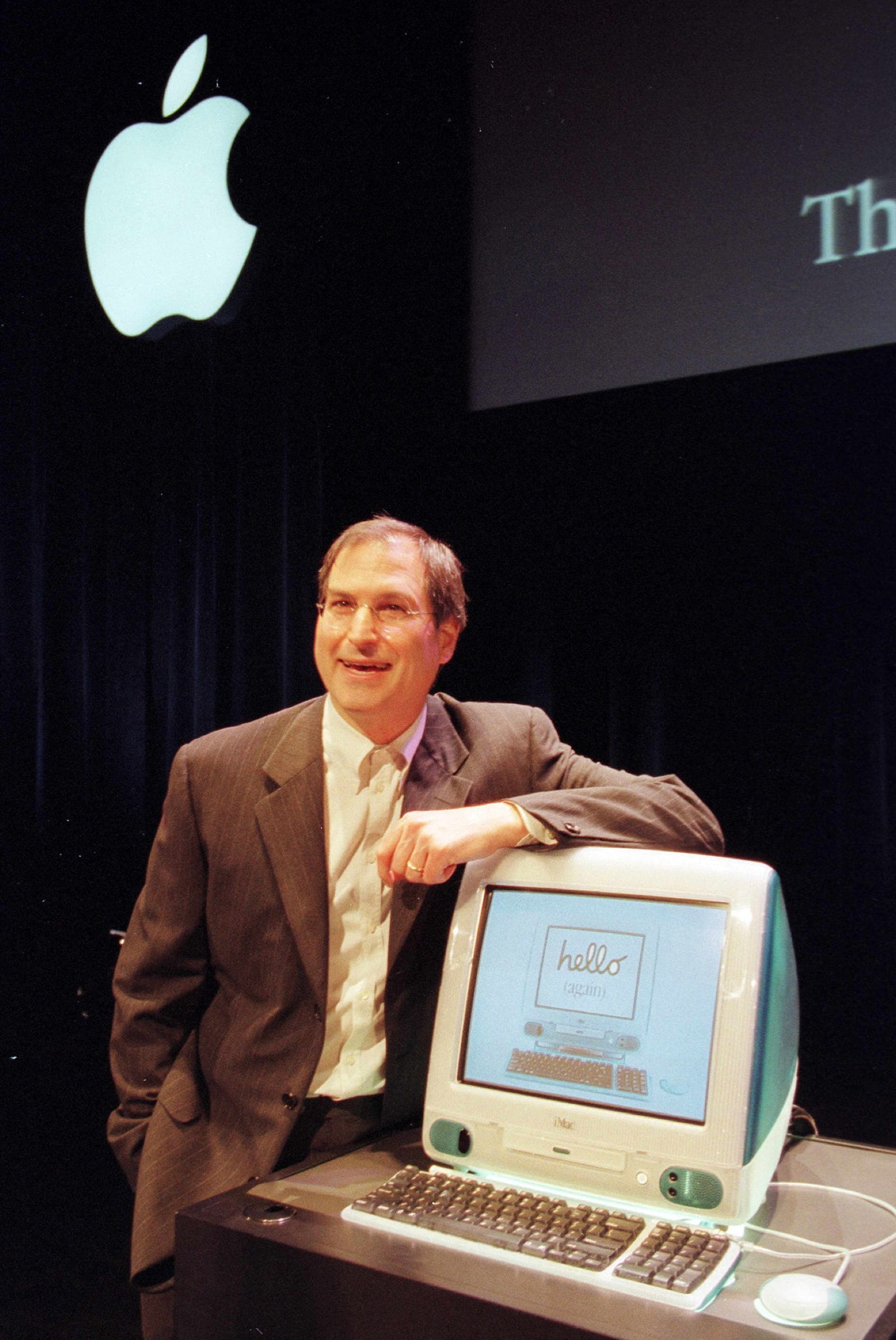
Although the Think Different campaign raised Apple’s profile, the company’s profitability didn’t change until the iMac was introduced in 1998 and saw enormous sales. Jobs made no secret of the fact that this “Bondi Blue” blob would either make or break Apple to his outside advertising firm, TBWA\Chiat\Day.
The reasonably priced, consumer-focused computer, originally codenamed C1, was intended to be sold as a device that could quickly connect to the internet—a feature that was uncommon in the 1990s but now commonplace. Bright, entertaining, user-friendly, and immensely profitable, the iMac launched Apple on its path to becoming the massive corporation that topped the global wealth rankings in 2011. (Earlier this year, Microsoft surpassed Apple to become the biggest company in the world based on market valuation.)
The original iMac was remained unnamed weeks after its release. The marketing and product teams at Apple experimented with names like “Rocket Mac,” “EveryMac,” and “Maxter,” but ultimately decided on “MacMan,” a play on the Walkman, a popular and well-known portable music player made and sold by Sony since 1979.
Jobs were drawn to MacMan because it had a similar sound to the Walkman, the most well-known and lucrative electronic item in the world at the time, according to Segall.
“He found satisfaction in the affiliation. He addressed the marketing staff, stating that he would be okay with Apple pursuing a similar path to success as Sony, provided they received some positive publicity from their partnership with MacMan. Segall concurs that Jobs didn’t “think different” in that way.
“Looking back, it’s perhaps a surprise that [Jobs] was willing to take some rub-off from another brand and name his product in a similar way,” Segall says. It runs counter to all that people believed Steve to be an advocate of. But at that time, Apple was near bankruptcy, and all the wheels were spinning in his head about what would help this company-saving new product get attention. He was adamant he wanted MacMan. We said we could do better than that, and he told us to prove it.”
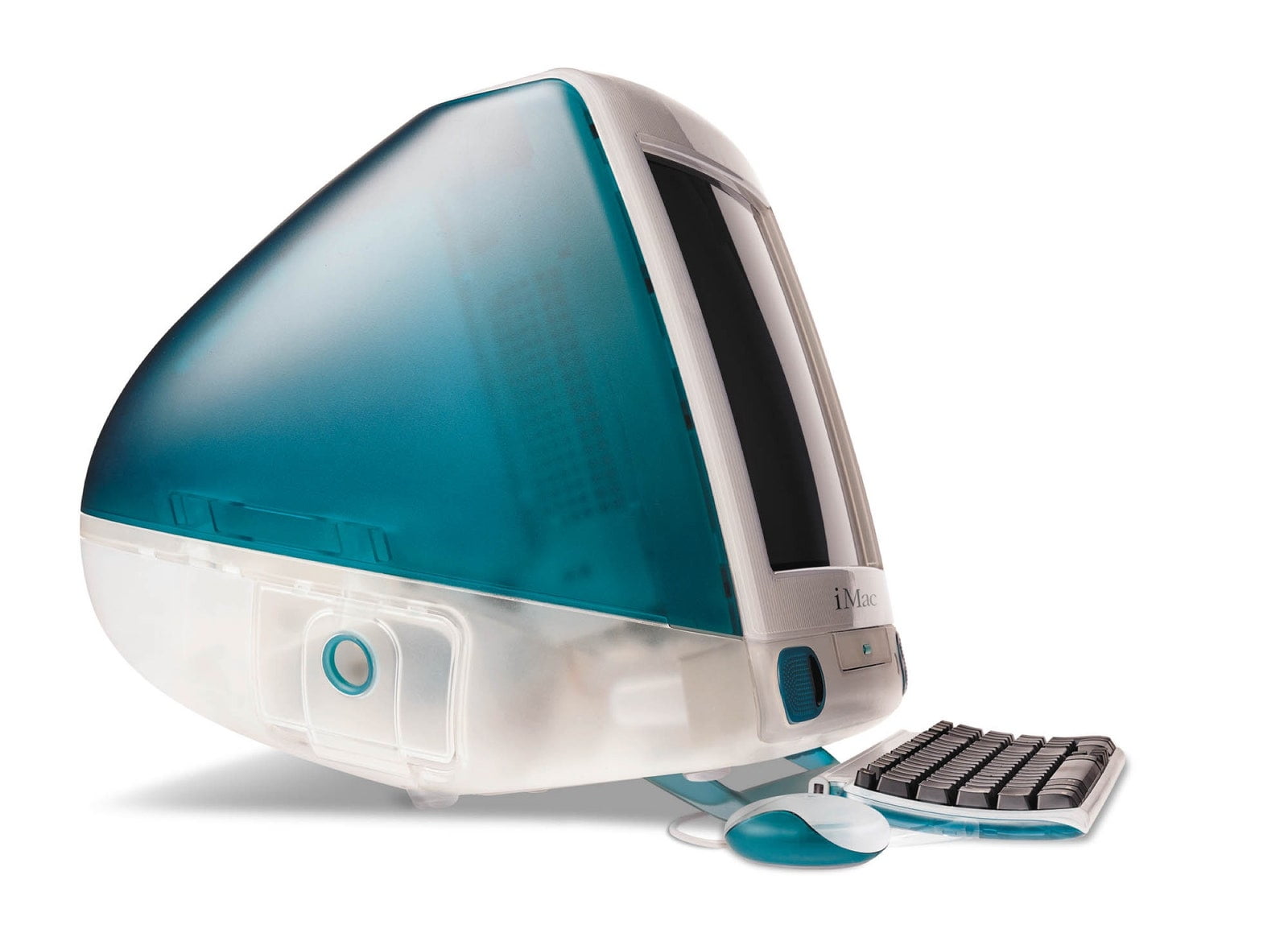
There were requirements. The machine’s internet-centric design had to be emphasized and the Macintosh brand had to be referenced in the new moniker. The packaging, advertisements, and name all needed to be finalized within a few days.
Jobs ordered his staff, “Now go out there and give me a great name,” according to Segall. Five names were worked through in draft form. Segall’s wordplay on the iMac was his favorite.
According to Segall, “iMac referred to the Mac, and the ‘i’ meant internet.” However, it also implied individuality, creativity, and “I,” as in “me.” It was brief, which was both a benefit and a step forward. “At that time, not a single Apple computer had shortened Macintosh to Mac. They were all Macintoshes,”
Segall claims that the initial pitch of the new moniker to Jobs was not warmly received. “I assembled five boards, one for each of the other names we thought of and the image that would eventually become the iMac. They were dead on since I was an iMac fan.
Instead, Jobs gave the crew the assignment to go back and work on more names. But Segall remained steadfast in his beliefs, bringing his favorite back in addition to introducing three new names at the following meeting.
“Jobs detested the word ‘iMac’ from the moment he first saw it. It wasn’t love at first sight the second time. “I don’t hate it this week, but I still don’t like it,” he remarked. Still, the moniker endured.
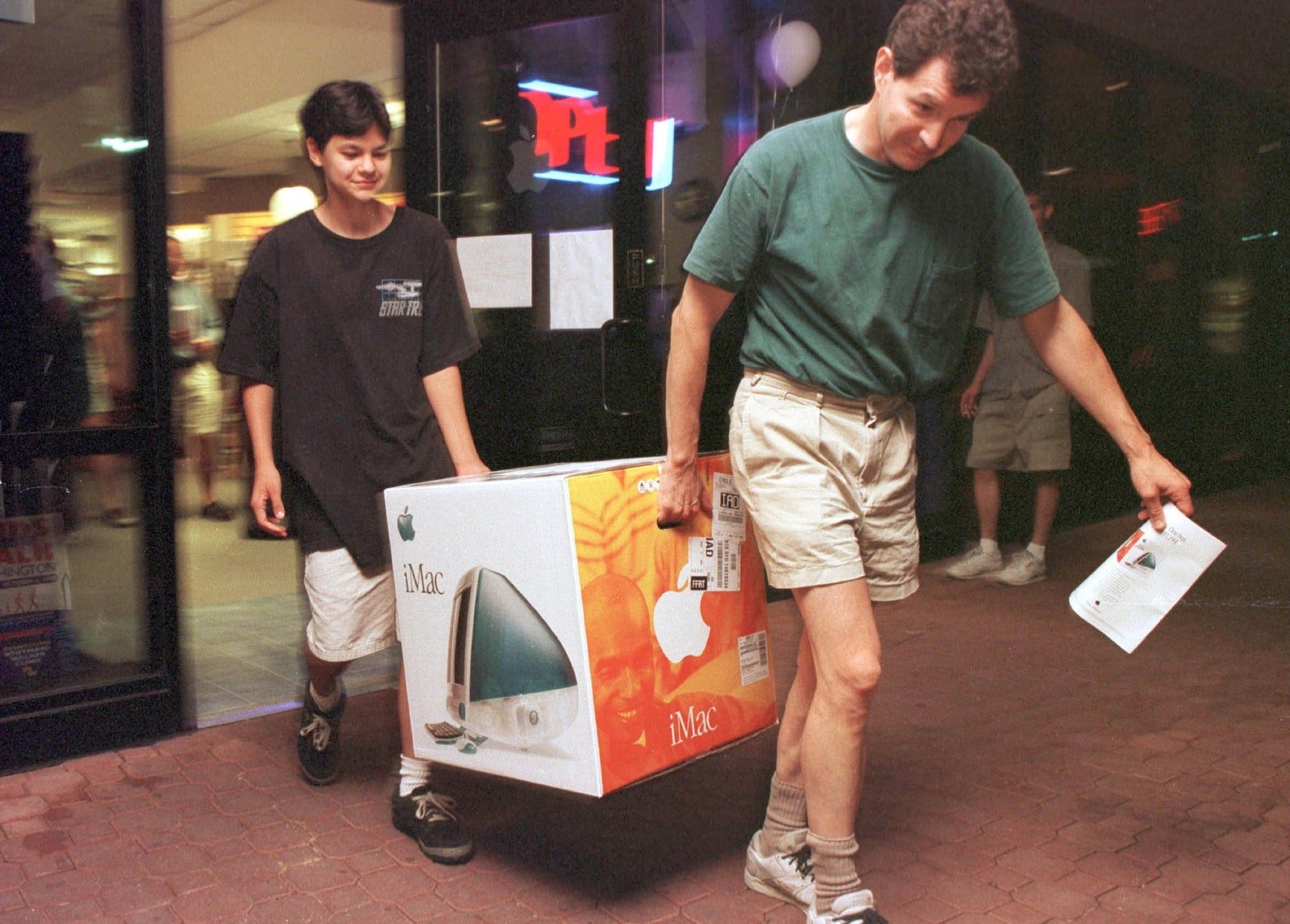
According to Segall, “We knew this was the computer that had to save Apple.” That is how it was explained to us prior to our viewing. Our jaws dropped to the ground as our team saw it for the first time. It was incredibly audacious. I looked at that computer and, like many in the room, doubted it would sell. That proves I’m not a visionary. I am simply a guy who can write good words for a visionary. [Jobs] and Jony Ive thought the iMac was going to change the world. It certainly saved Apple.”
Furthermore, Segall emphasized during the name presentations that additional Apple hardware that has not yet been built may utilize his “i” prefix. “I made an effort to persuade [Jobs] that the ‘i’ was a fundamental component that could be used to other goods. Not that there were any other consumer goods available at the time, and handheld devices were definitely not a thing.
According to Segall, Apple is now a significantly different corporation without Jobs. One person could not fill every job. His impeccable taste permeated every aspect of Apple, and he never wavered from his underlying beliefs, which included adopting an unconventional style of thinking. Over time, that has gradually been undermined, he claims.
“If Jobs had lived longer, we’ll never know what he would have done. However, he wouldn’t have hesitated to omit the “i.”
Connect with us for the Latest, Current, and Breaking News news updates and videos from thefoxdaily.com. The most recent news in the United States, around the world , in business, opinion, technology, politics, and sports, follow Thefoxdaily on X, Facebook, and Instagram .
